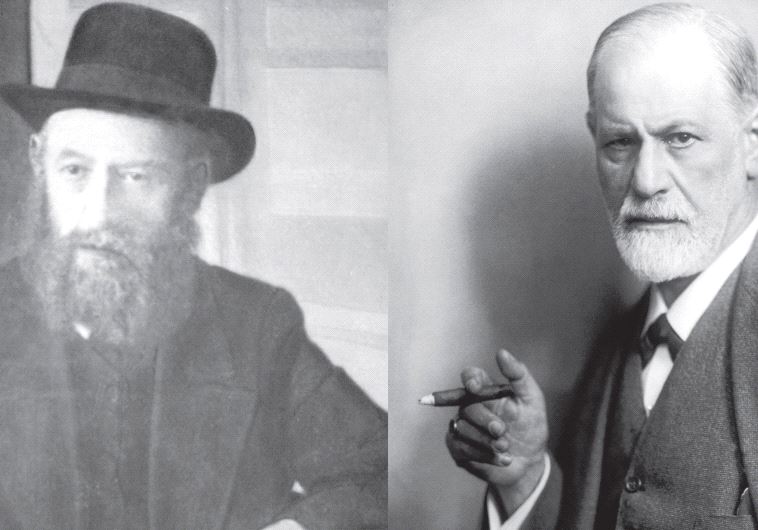Ultra-Orthodox rabbis’ attitude toward psychological treatment
Seeking psychological treatment from therapists whose views and values do not contradict the Torah is sanctioned, and is even considered a mitzva.
 Rabbi Shalom Dov-Ber Schneersohn (L) and Prof. Sigmund Freud (R)(photo credit: Wikimedia Commons)
Rabbi Shalom Dov-Ber Schneersohn (L) and Prof. Sigmund Freud (R)(photo credit: Wikimedia Commons)